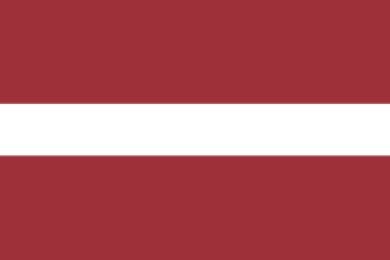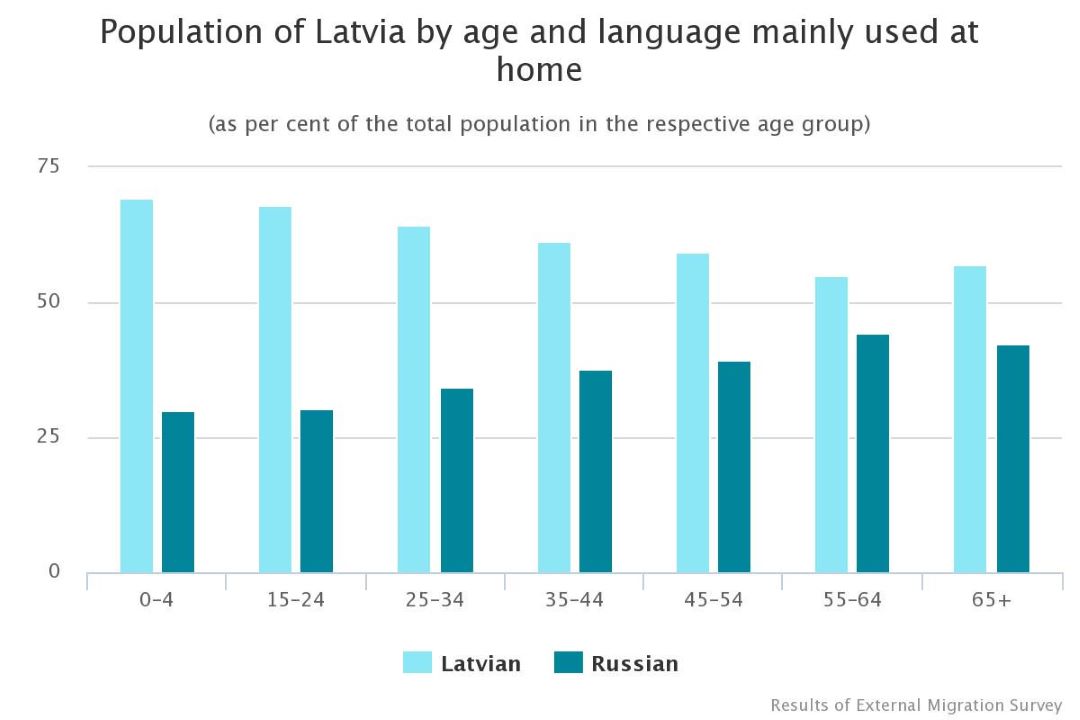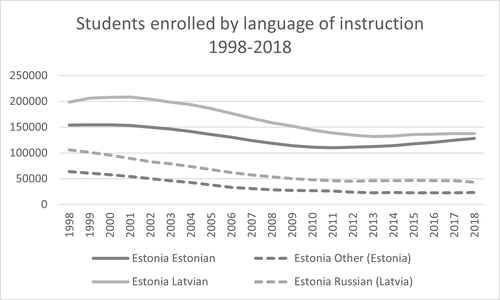
Capital: Riga
Population: 1.88 million
Russian Minority: 25.2%
GDP: $39.85 billion USD
Russian speakers
Russian speakers are the biggest ethnic group in Latvia, comprising 25.2% of the population. The ethnic minority and the dominant majority are differentiated by language, religion, residence, and schooling. The former are Russian speakers, practice Eastern Orthodoxy or self identify as Old Believers. They are urban dwellers residing primarily in the capital city of Riga and the second largest city of Daugavpils. Russian-speaking children tend to attend preschools and schools with Russian language of instruction.
Pressing Issues
Russian speakers in Latvia are most affected by education and citizenship policies. Both policies delineate ethnic boundaries between the dominant and ethnic minorities. Latvian is the only official language, and it is the dominant language in public and private schools. At the same time, Russian-language education has become severely limited since state independence. Exclusionary citizenship adopted in the early 1990s excluded most Russian speakers from the political community. Presently, over 70% of Russian speakers in Latvia have citizenship.
Language
According to the Central Statistical Bureau of Latvia, Russian is the mother tongue of 36% of the population of Latvia. Russian is the mother tongue of 53.5% of the population of the capital city Riga. The share of native Russian speakers is the highest in Latgale region (55.5%), followed by Zemgale (23.8%) and Pieriga (22.4%).
| Population of Latvia by mother tongue | ||
|---|---|---|
| 2000 | 2017 | |
| Latvian | 58.2% | 60.8% |
| Russian | 37.5% | 36% |
| Other | 4.3% | 3.2% |
Source: Central Statistical Bureau of Latvia, 2019.
About 45% of people aged 50 and over speak Russian at home. These rate are lower for second generation Russian speakers. Russian is used at home by 30% of those aged 15 to 24.

Source: Central Statistical Bureau of Latvia, 2019.
Education
Russian-language education in Latvia has been on the decline in Latvia. The graph presents the number of students enrolled in schools according to language of instruction between 1998 and 2018:

Citizenship
Number of persons having been granted Latvian citizenship since state independence:
| Year | Number |
|---|---|
| 1995 | 984 |
| 1996 | 3,016 |
| 1997 | 2,992 |
| 1998 | 4,439 |
| 1999 | 12,427 |
| 2000 | 14,900 |
| 2001 | 10,637 |
| 2002 | 9,844 |
| 2003 | 10,049 |
| 2004 | 16,064 |
| 2005 | 19,169 |
| 2006 | 16,439 |
| 2007 | 6,826 |
| 2008 | 3,004 |
| 2009 | 2,080 |
| 2010 | 2,336 |
| 2011 | 2,467 |
| 2012 | 2,213 |
| 2013 | 1,732 |
| 2014 | 939 |
| 2015 | 971 |
| 2016 | 987 |
| 2017 | 915 |
| 2018 | 930 |
| 2019 | 808 |
| 2020 | 725 |
| Total | 147,893 |